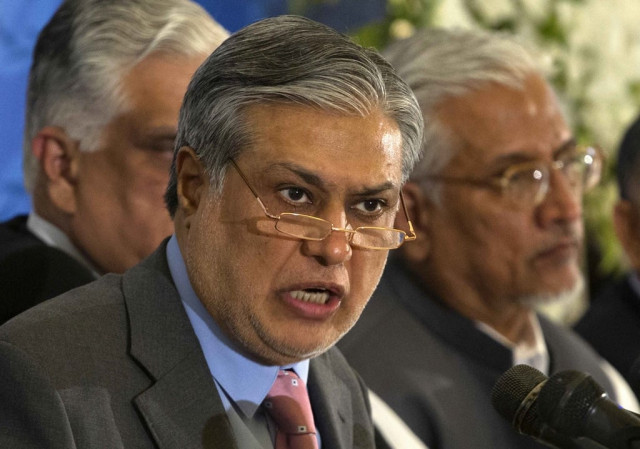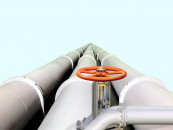End of tax exemptions: sacred cows untouched
The government plans to generate over Rs12 billion by tinkering with sales tax rates under SRO 1125

Federal Finance Minister Ishaq Dar. PHOTO: REUTERS
Tax authorities on Wednesday disclosed their plan to withdraw most of the remaining sales tax and customs duties exemptions currently protected under concessionary statutory regulatory orders (SROs), a move which will increase the prices of hundreds of items used by common people.
Pakistan, China divided over tax exemptions
However, the plan does not include income tax exemptions enjoyed by the affluent and concessions available to the influential automobile sector, sources told The Express Tribune. The income tax exemptions plan may be unveiled at a later stage, they said.
Under a three-year programme agreed with International Monetary Fund (IMF), the government is bound to completely phase out its concessionary tax regime by July 2016. The government has already withdrawn Rs225 billion in tax exemptions in the last two years, but the blueprint shows that ‘sacred cows’ will be protected even in the last phase.
The first meeting of the high-powered committee constituted to review the concessionary tax regime, chaired by Finance Minister Ishaq Dar, was held on Wednesday. The committee reviewed the draft plan for withdrawal of concessionary SROs and exemptions for the fiscal year 2016-17, said the finance ministry.
Sources said the Federal Board of Revenue proposed to withdraw Rs14.5 billion worth of customs duties exemptions, currently protected under the fifth schedule of the Customs Act. The authorities have proposed to increase customs duties on imports of agriculture machinery, medicines, poultry, vegetables, fruits, imports for power generation and equipment for LNG and LPG, and imports by the aviation industry.
Pakistan faces Rs3.3 trillion revenue black hole, says IMF
In the last two budgets, the government changed duties and tax structures of about 4,000 product lines, which increased the prices of these goods, as the importers and the manufacturers passed on the increase to the consumers.
Sources said the last phase would further increase the prices. However, the key inflation indicator, the Consumer Price Index, will not significantly jump thanks to the administratively weak Pakistan Bureau of Statistics.
In total, the Pakistan Muslim League-Nawaz government has levied an unprecedented Rs940 billion additional taxes from June 2013 to January 2016. Yet it could not achieve the tax targets and the number of filers decreased by 11.7% to just 925,000.
The government has also proposed withdrawing Rs40 billion worth of sales tax exemptions, currently protected under sixth schedule of Sales Tax Act of 1990. This would increase the prices of certain edible goods and various kinds of plants and machinery including for power generation.
The fresh plan also includes changing sales tax rates under controversial SRO 1125 that deals with sales tax for textile, leather, sports goods, surgical goods and carpets. The FBR has proposed standard 17% rates for these items as against the prevailing 3% to 5% rates. The government plans to generate over Rs12 billion by tinkering with sales tax rates under SRO 1125.
Economic 2015-15 Survey: Tax exemptions eat up Rs665b in revenues
Sources said that FBR has also proposed withdrawing the remaining exemptions available under the eighth schedule of the Sales Tax Act, and SRO 565 of Customs Act. The sales tax rates on goods imported under the eighth schedule are proposed to be further increased. These items include soyabean meal, oilseeds, plant and machinery, and chemicals.
FBR also proposed to reduce the number of tariff slabs from five to four from July. The higher slab currently carries 20% customs duties rates, which may be brought down. However, to offset the impact on revenues, the rates of lower slabs will be increased, which will have greater impact on prices as majority of goods in lower tariffs are edible items. This is also a condition of the IMF to reduce tariff slabs to four.
“In the coming fiscal year, the phasing out programme of concessionary SROs and exemptions would be completed,” a finance ministry handout quoted Dar as saying.
Published in The Express Tribune, March 17th, 2016.



















COMMENTS
Comments are moderated and generally will be posted if they are on-topic and not abusive.
For more information, please see our Comments FAQ